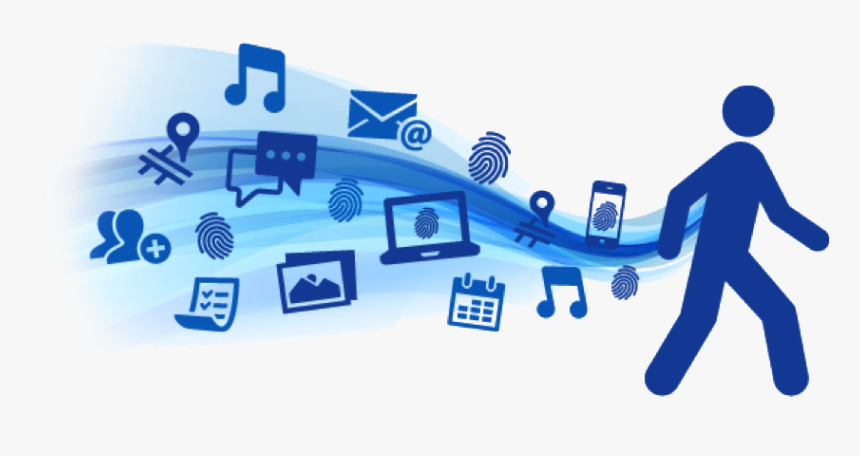In today’s digital landscape, the concept of “identidad digital,” or digital identity, has never been more pertinent. As individuals increasingly engage with the online sphere, understanding the nuances of digital identity becomes essential. This exploration examines the implications, the promise for transformation, and how digital identity fundamentally reshapes personal and social interactions.
At its core, digital identity refers to the online representation of an individual. It encompasses a multitude of elements, including social media profiles, website activity, and even the metadata accompanying our digital footprints. Much like a fingerprint, no two digital identities are identical. They are shaped by a complex interplay of choices, behaviors, and the ever-evolving digital environment. Yet, this notion goes beyond mere representation; it serves as a bridge between the virtual persona and the real-world self.
One remarkable aspect of digital identity is its duality. On one hand, it offers unprecedented opportunities for self-expression and connectivity. People can curate their images, share their experiences, and form global communities based on shared interests or ideologies. This facet is especially evident in social media, where users can reach audiences that transcend geographical confines and cultural barriers. In essence, digital identities amplify voices that may otherwise remain unheard.
However, the other side of this digital coin reveals a more concerning narrative. The proliferation of data collection and surveillance poses significant risks to individual privacy and autonomy. Every click, like, and share contributes to an intricate web of behavioral data. This information can be used for targeted advertising, behavioral profiling, and even discriminatory practices. Consequently, understanding and managing digital identity is crucial for safeguarding personal agency in a world dominated by algorithms and big data.
As we delve deeper into digital identity, it becomes imperative to consider its implications for personal relationships. The way individuals present themselves online can dramatically alter interpersonal dynamics. For instance, a carefully curated social media profile can project an image of success and happiness, potentially creating unrealistic expectations. This phenomenon can lead to envy, dissatisfaction, and a distorted sense of self among peers.
Conversely, the anonymity embedded in digital interactions can foster genuine connections. Individuals may feel more liberated to express their authentic selves when unencumbered by the constraints of physical presence. This paradox highlights a fascinating dichotomy: the potential for deeper connections in a space often criticized for superficiality. The exploration of digital identity thus encourages a reevaluation of what authenticity entails in an increasingly mediated world.
Furthermore, examining the evolution of digital identity prompts reflection on individual agency and responsibility. As users of digital platforms, individuals possess the power to mold their identities actively. This capacity fosters a sense of ownership and accountability, compelling users to consider the implications of their online actions. Education surrounding digital literacy becomes paramount, equipping individuals with the skills necessary to navigate their digital landscapes proactively.
In tandem with this empowerment, the notion of digital footprints plays a significant role. Every interaction leaves an indelible mark, and the permanence of online content can haunt individuals long after it has been posted. The permanence of digital identity emphasizes the importance of thoughtful engagement with online platforms. It serves as a reminder that what is shared in the digital realm may persist well beyond its initial context.
Moreover, the topic of digital identity invites scrutiny of societal norms and structures. The implications of digital identity are far-reaching, extending into realms such as employment, governance, and personal security. Employers increasingly rely on digital identity assessments during the hiring process, often evaluating candidates based on their online presence. Similarly, governments utilize digital identities as mechanisms for identification and surveillance. This intersection of digital identity with institutional practices raises ethical questions surrounding privacy, equity, and social justice.
As society continues to navigate these complexities, the future of digital identity remains a tantalizing prospect. Innovative technologies, such as blockchain, offer promising avenues for enhancing security and privacy. Decentralized identity systems empower individuals by granting them greater control over their personal information. This shift represents a paradigm shift in how identities are constructed, validated, and maintained in the digital age.
Consequently, a seismic shift in perspective is warranted. Embracing digital identity as a dynamic construct invites individuals to engage critically with their online personas. It fosters a culture of mindfulness, encouraging users to reflect on the legacy they create within the digital domain. As curiosity is piqued, individuals may explore ways to cultivate authentic digital identities that resonate with their true selves.
Moreover, the importance of community in shaping digital identity cannot be overlooked. As individuals navigate their online experiences, fostering supportive digital communities becomes vital. These spaces provide opportunities for shared learning and collective advocacy, enhancing the resilience of digital identities against the darker aspects of the online sphere. Communities can serve as catalysts for empowerment, amplifying marginalized voices and fostering a sense of belonging amid the chaos of digital interactions.
In conclusion, the intricacies of digital identity are multifaceted and warrant earnest exploration. The interplay of opportunities and challenges inherent within this construct compels individuals to reconsider their interactions in the digital space. As society embraces the promise of transformation, cultivating an informed, conscientious digital identity can yield profound benefits, fostering personal growth, community engagement, and social responsibility. Ultimately, the journey toward understanding digital identity beckons—a profound expedition into the essence of what it means to exist in an interconnected world.
